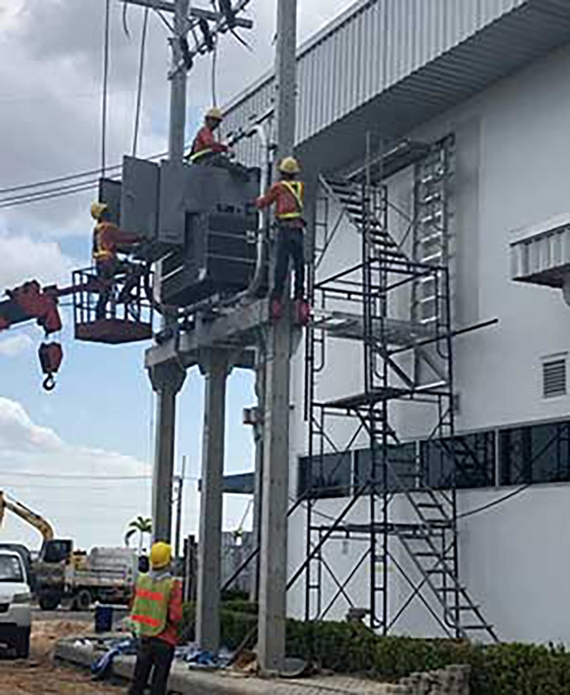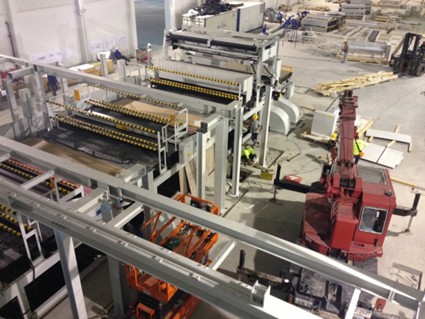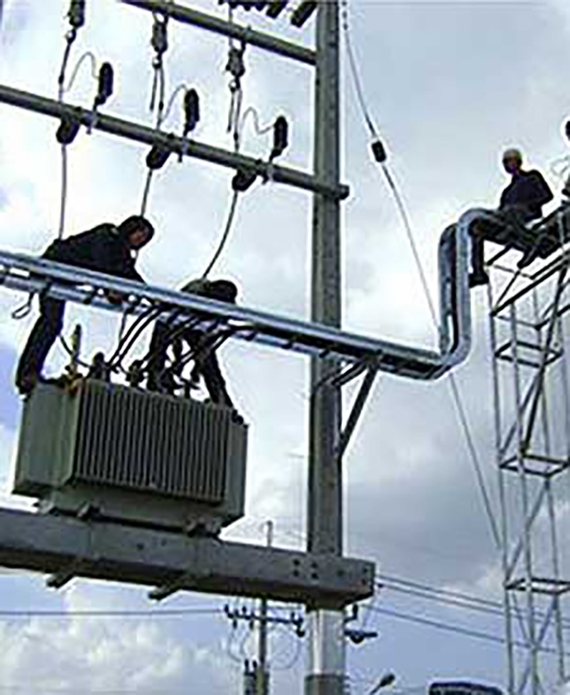
Mechanical Systems Works plays a crucial role in the manufacturing processes of all types of industrial factories, whether they produce food, automobiles, or electronics. These systems convert energy and materials into finished products. Mechanical systems involve the design, installation, control, and maintenance of machinery and equipment essential to production. A well-designed mechanical system helps enhance manufacturing capability, reduce energy costs, and maintain safety in the factory environment.
Understanding Mechanical Systems in Industrial Factories
Mechanical systems in industrial factories refer to systems comprising machinery, equipment, and structures working together to transform energy and materials into finished products. They rely on mechanical engineering principles such as fluid mechanics, heat transfer, and mass transfer. If we use a simple analogy, a factory’s mechanical system is like the human body—machines act as organs with different functions, but working together, they allow the body to run perfectly. Mechanical systems play a vital role in enhancing production efficiency and safety by reducing energy waste, minimizing production downtime, and ensuring smooth operations. They also help preserve product quality and increase output, which are critical for factories aiming to be competitive in the market.

Common Examples of Mechanical Systems in Industrial Factories
1. Piping and Duct Systems – In industrial factories, they are essential for transporting fluids such as water, air, gas, or chemicals to production-related points. This also includes ducts used for cooling or venting exhaust air. Proper design and installation prevent leakage and enhance transport efficiency.
2. Fire Water Piping Systems – These are essential in factories, serving to deliver water to fire-fighting devices such as sprinklers or fire hydrants during emergencies. Correct and efficient installation reduces damage and fire risk.
3. Air Conditioning Systems – In factories, these control production area temperatures to maintain product quality and create comfortable conditions for workers. Proper temperature control also reduces machinery heat and improves operational efficiency.
4. Ventilation Systems – These remove polluted or stale air from production areas and bring in fresh air to ensure a safe and comfortable working environment. Especially important in factories with chemical use or processes generating dust or smoke, efficient ventilation helps protect worker health and maintains air quality.
5. Chilled Water Piping Systems – Used to transport chilled water to machinery or cooling systems in factories, such as chillers or equipment requiring temperature control. Efficient chilled water systems help prevent equipment overheating and preserve product quality, enhancing operational effectiveness.
Why Design and Maintenance of Mechanical Systems Requires Experts
Mechanical systems in factories usually consist of multiple components that must work in precise coordination—be it power transmission, piping, air conditioning, or ventilation systems. Each system is complex, and effective design must take into account the interaction of all parts. Improper maintenance or neglect can lead to severe damage affecting the entire production process.
Moreover, safety is a crucial consideration when dealing with mechanical systems. Large machinery often consumes high energy, posing risks to both personnel and equipment. Strict safety planning and enforcement from design through maintenance are necessary. Experienced specialists can identify risk points and recommend appropriate preventive measures, reducing the likelihood of life-threatening accidents.
Therefore, designing and maintaining mechanical systems in industrial factories require specialized knowledge and skills. Given the complexity and challenges involved, Technical System Engineering recommends hiring experts to ensure systems operate safely, efficiently, and in compliance with industrial standards.
Looking for Comprehensive Electrical and Mechanical System Experts?

Technical System Engineering is a specialist in the design, installation, and maintenance of electrical and mechanical systems for various industrial factories—whether food, pharmaceuticals, or utilities. We are dedicated to delivering tailored solutions using our team's engineering experience and expertise. Our full-service offerings include high- and low-voltage electrical system design, transformer and control panel installation, and mechanical systems setup. From design through installation to maintenance, clients can be confident in comprehensive, need-based service.
Specialty services:
- Ventilation Systems: We design and install ventilation tailored to working environments—like industrial duct systems, air ducts, and cleanroom systems.
- Air Conditioning Systems: We install air-conditioning systems that control temperature and humidity for comfortable working conditions.
- Piping Systems: Expertise in piping installations such as chilled water systems, cooling systems, and chiller lines.
- Cleanroom Systems: We design and install standard-compliant cleanrooms to control dust and microbial levels.
- Fire Water Piping Systems: Essential systems for every factory to prevent and control fire incidents.
Mechanical systems in industrial factories play a critical role in ensuring efficient and safe production. Whether it’s robust power delivery, efficient piping, appropriate heating and cooling, or continuous equipment maintenance—these systems enhance production efficiency and operate costs. Factories with well-managed mechanical systems maintain product quality and sustain market competitiveness. For further consultation, Technical System Engineering Co., Ltd. is pleased to assist. Visit our website for additional services: www.tsecthai.com
---------------------------------------------
Read more

Mechanical Systems Works plays a crucial role in the manufacturing processes of all types of industrial factories, whether they produce food, automobiles, or electronics. These systems convert energy and materials into finished products. Mechanical systems involve the design, installation, control, and maintenance of machinery and equipment essential to production. A well-designed mechanical system helps enhance manufacturing capability, reduce energy costs, and maintain safety in the factory environment.
Understanding Mechanical Systems in Industrial Factories
Mechanical systems in industrial factories refer to systems comprising machinery, equipment, and structures working together to transform energy and materials into finished products. They rely on mechanical engineering principles such as fluid mechanics, heat transfer, and mass transfer. If we use a simple analogy, a factory’s mechanical system is like the human body—machines act as organs with different functions, but working together, they allow the body to run perfectly. Mechanical systems play a vital role in enhancing production efficiency and safety by reducing energy waste, minimizing production downtime, and ensuring smooth operations. They also help preserve product quality and increase output, which are critical for factories aiming to be competitive in the market.

Common Examples of Mechanical Systems in Industrial Factories
1. Piping and Duct Systems – In industrial factories, they are essential for transporting fluids such as water, air, gas, or chemicals to production-related points. This also includes ducts used for cooling or venting exhaust air. Proper design and installation prevent leakage and enhance transport efficiency.
2. Fire Water Piping Systems – These are essential in factories, serving to deliver water to fire-fighting devices such as sprinklers or fire hydrants during emergencies. Correct and efficient installation reduces damage and fire risk.
3. Air Conditioning Systems – In factories, these control production area temperatures to maintain product quality and create comfortable conditions for workers. Proper temperature control also reduces machinery heat and improves operational efficiency.
4. Ventilation Systems – These remove polluted or stale air from production areas and bring in fresh air to ensure a safe and comfortable working environment. Especially important in factories with chemical use or processes generating dust or smoke, efficient ventilation helps protect worker health and maintains air quality.
5. Chilled Water Piping Systems – Used to transport chilled water to machinery or cooling systems in factories, such as chillers or equipment requiring temperature control. Efficient chilled water systems help prevent equipment overheating and preserve product quality, enhancing operational effectiveness.
Why Design and Maintenance of Mechanical Systems Requires Experts
Mechanical systems in factories usually consist of multiple components that must work in precise coordination—be it power transmission, piping, air conditioning, or ventilation systems. Each system is complex, and effective design must take into account the interaction of all parts. Improper maintenance or neglect can lead to severe damage affecting the entire production process.
Moreover, safety is a crucial consideration when dealing with mechanical systems. Large machinery often consumes high energy, posing risks to both personnel and equipment. Strict safety planning and enforcement from design through maintenance are necessary. Experienced specialists can identify risk points and recommend appropriate preventive measures, reducing the likelihood of life-threatening accidents.
Therefore, designing and maintaining mechanical systems in industrial factories require specialized knowledge and skills. Given the complexity and challenges involved, Technical System Engineering recommends hiring experts to ensure systems operate safely, efficiently, and in compliance with industrial standards.
Looking for Comprehensive Electrical and Mechanical System Experts?

Technical System Engineering is a specialist in the design, installation, and maintenance of electrical and mechanical systems for various industrial factories—whether food, pharmaceuticals, or utilities. We are dedicated to delivering tailored solutions using our team's engineering experience and expertise. Our full-service offerings include high- and low-voltage electrical system design, transformer and control panel installation, and mechanical systems setup. From design through installation to maintenance, clients can be confident in comprehensive, need-based service.
Specialty services:
- Ventilation Systems: We design and install ventilation tailored to working environments—like industrial duct systems, air ducts, and cleanroom systems.
- Air Conditioning Systems: We install air-conditioning systems that control temperature and humidity for comfortable working conditions.
- Piping Systems: Expertise in piping installations such as chilled water systems, cooling systems, and chiller lines.
- Cleanroom Systems: We design and install standard-compliant cleanrooms to control dust and microbial levels.
- Fire Water Piping Systems: Essential systems for every factory to prevent and control fire incidents.
Mechanical systems in industrial factories play a critical role in ensuring efficient and safe production. Whether it’s robust power delivery, efficient piping, appropriate heating and cooling, or continuous equipment maintenance—these systems enhance production efficiency and operate costs. Factories with well-managed mechanical systems maintain product quality and sustain market competitiveness. For further consultation, Technical System Engineering Co., Ltd. is pleased to assist. Visit our website for additional services: www.tsecthai.com
---------------------------------------------
Read more


